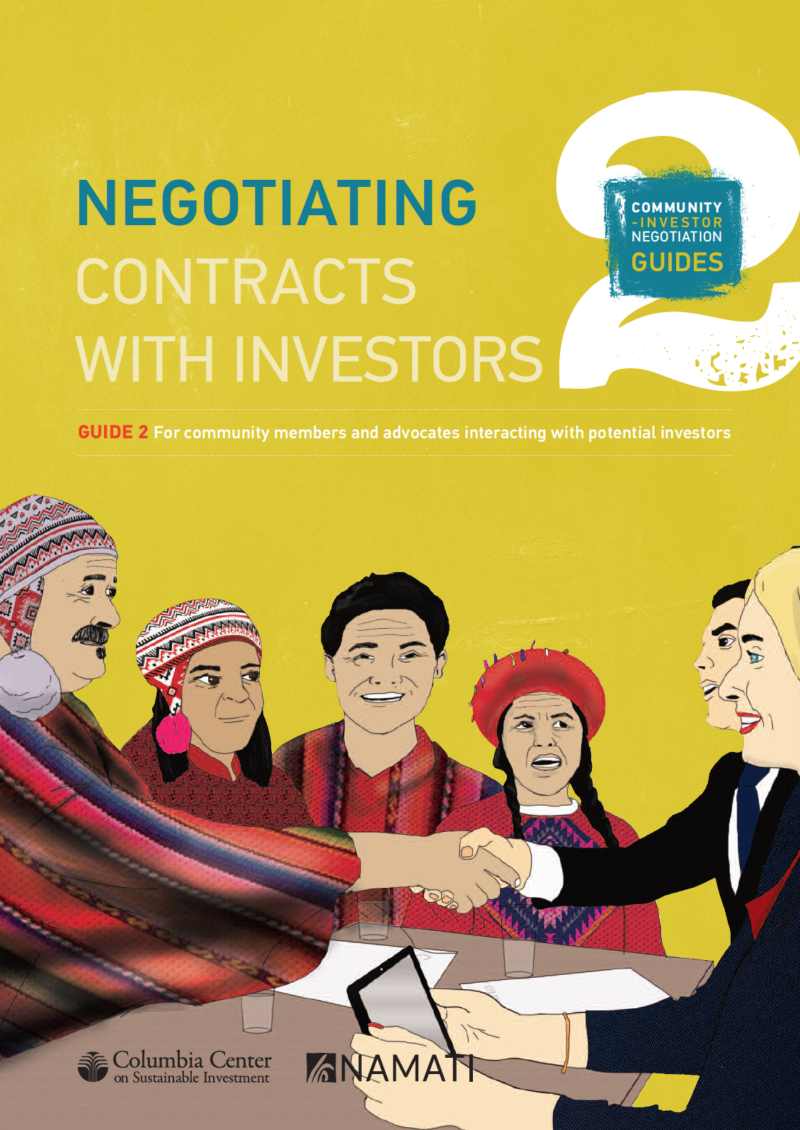Resource information
Deciding whether or not to allow an investor to use community lands and natural resources is one of the most important decisions a community can make.
When negotiations are conducted fairly and inclusively, investments may result in the creation of jobs, provision of much-needed infrastructure such as schools, roads and clinics, and rental payments that have the potential to support the community’s long-term prosperity and wellbeing.
Unfortunately, consultations between communities and investors are typically characterized by significant information and power imbalances. Community members often don’t know what rights they have, what fair compensation would be, or what is required to make a contract clear and enforceable. Without such a contract, communities are often powerless to hold an investor acting in bad faith accountable, demand remedies for environmental and social damages, or contain an expanding investment to the plot of land originally agreed upon.
Namati and CCSI’s new Community-Investor Negotiation Guides help communities and frontline advocates to engage with potential investors from a place of empowerment.
Drawing on lessons from dozens of community-investor contracts and communities’ experiences from around the world, the two guides offer practical information and accessible legal guidance. They are the first resources of their kind.
Guide 1 (found here) explains how communities can prepare for interactions with potential future investors and decide whether or not to enter into discussions or negotiations with an investor that has arrived. It is designed to be used before any negotiations start.
This guide (guide 2) contains advice for communities who have agreed to negotiate with a potential investor. It describes the various sections and clauses that should be in a contract, advises what protective language to include, and warns of “red flag” language to avoid. It is designed to help communities and their frontline advocates to negotiate clear, fair, and enforceable contracts that require investors to respect community interests, conserve the local environment, and support the community’s development—all on the community’s own terms.

